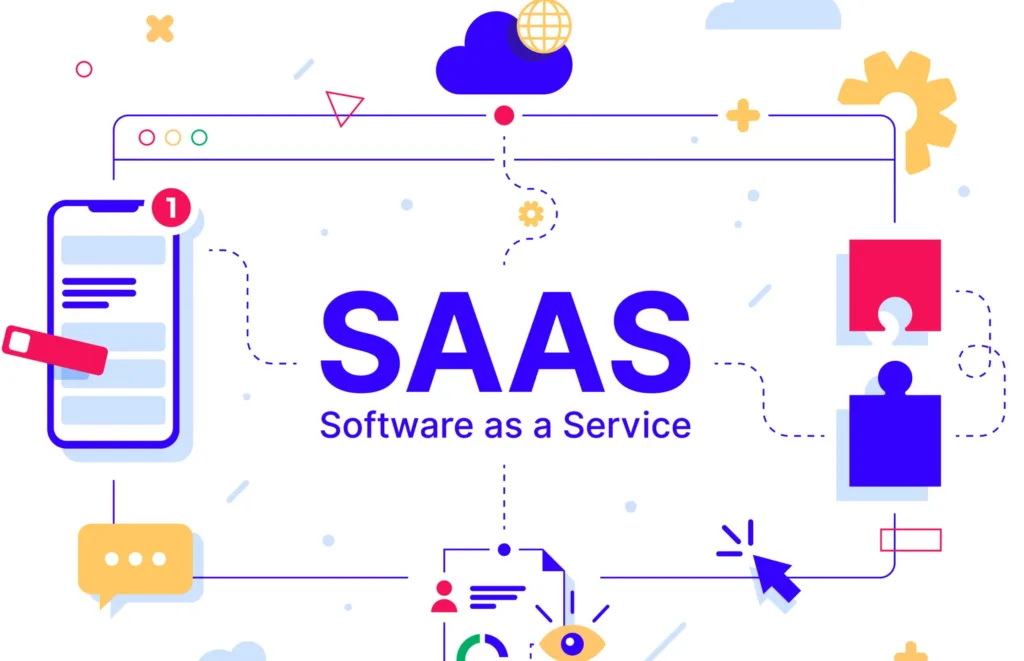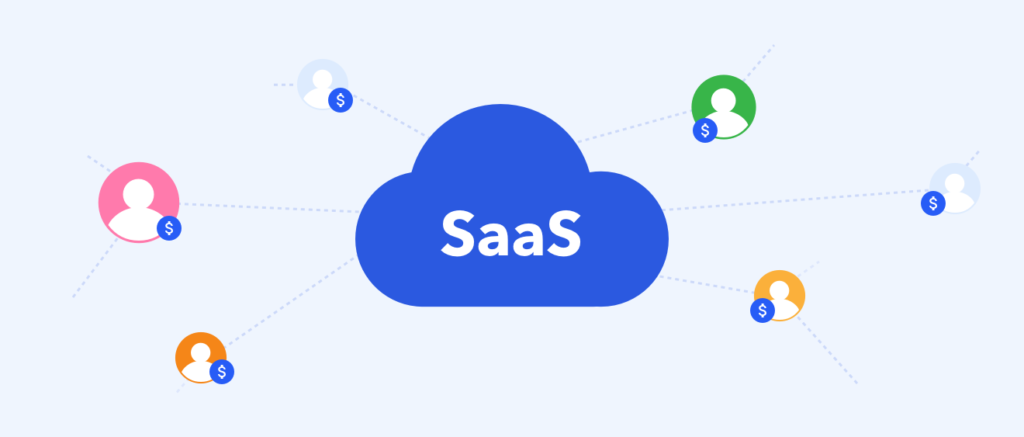In today’s digital landscape, Software-as-a-Service (SaaS) has emerged as a popular business model, offering convenient and scalable solutions to customers worldwide. Alongside the rise of SaaS, affiliate marketing has also gained prominence as an effective strategy for driving customer acquisition and revenue growth. In this article, we will explore the realm of SaaS affiliate marketing, its benefits, challenges, and provide insights into leveraging this powerful marketing approach successfully.

SaaS Affiliate Marketing: Unlocking the Potential of Partnership
Understanding Affiliate Marketing
What is Affiliate Marketing?
Affiliate marketing is a performance-based marketing model where individuals or entities (affiliates) earn commissions by promoting products or services of other companies (merchants). Affiliates leverage various marketing channels, such as websites, blogs, social media, or email newsletters, to drive traffic and generate sales for the merchant.
How Does Affiliate Marketing Work?
In an affiliate marketing ecosystem, affiliates receive unique tracking links or codes that allow the merchant to attribute sales to their efforts accurately. When a user clicks on an affiliate’s link and completes a desired action, such as making a purchase, the affiliate earns a commission based on the agreed terms.
Benefits of Affiliate Marketing
Affiliate marketing offers several benefits for both merchants and affiliates. For merchants, it provides a cost-effective way to expand their customer reach, increase brand exposure, and drive sales. Affiliates, on the other hand, can monetize their online presence, leverage established brand reputation, and earn passive income.
Exploring SaaS and Its Advantages
What is SaaS?
Software-as-a-Service (SaaS) is a cloud-based software delivery model where applications are hosted and maintained by a service provider and accessed by users over the internet. Unlike traditional software, SaaS eliminates the need for installation, updates, and hardware requirements, offering a more convenient and scalable solution for businesses and individuals.

The Advantages of SaaS
SaaS provides numerous advantages that contribute to its popularity among businesses. Some key benefits include:
Cost Efficiency: SaaS eliminates the upfront costs associated with purchasing and maintaining software licenses and infrastructure. Users pay a subscription fee, typically on a monthly or annual basis, which covers the software usage and ongoing support. This cost-effective approach allows businesses to allocate their resources more efficiently and focus on core activities.
Scalability and Flexibility: SaaS applications are designed to be highly scalable, allowing businesses to easily adjust their usage as their needs evolve. Whether it’s adding new users, expanding functionality, or accessing additional storage, SaaS platforms can accommodate the growing requirements without significant disruptions or investments.
Accessibility and Collaboration: With SaaS, users can access their applications and data from anywhere with an internet connection. This accessibility fosters collaboration and enables remote work, enhancing productivity and efficiency. Additionally, SaaS often integrates collaboration tools, facilitating seamless communication and teamwork among users.
Seamless Updates and Maintenance: SaaS providers handle software updates, patches, and maintenance tasks, relieving users from the burden of managing these activities. This ensures that businesses have access to the latest features, bug fixes, and security enhancements without any downtime or disruption to their operations.
The Intersection of SaaS and Affiliate Marketing
SaaS Affiliate Marketing: A Dynamic Duo
SaaS affiliate marketing brings together the power of SaaS solutions and the reach of affiliate marketing to create a mutually beneficial partnership. SaaS companies leverage affiliate marketing to expand their customer base, drive conversions, and increase brand awareness, while affiliates earn commissions by promoting valuable SaaS products or services.
Why SaaS Companies Embrace Affiliate Marketing
SaaS companies find affiliate marketing to be an effective strategy due to several reasons:
Increased Customer Acquisition: Affiliate marketing allows SaaS companies to tap into the networks and audiences of their affiliates, reaching potential customers who may not have been exposed to their offerings otherwise. This broadens their customer acquisition channels and increases the chances of attracting qualified leads.
Performance-Based Marketing: Affiliate marketing operates on a performance-based model, where affiliates are rewarded based on their actual contribution to sales or desired actions. This aligns the interests of SaaS companies and affiliates, driving them to work collaboratively to achieve mutual success.
Enhanced Brand Visibility: By leveraging the reach and influence of affiliates, SaaS companies can significantly enhance their brand visibility and exposure. Affiliates promote the SaaS products or services through various online channels, reaching diverse audiences and generating valuable buzz around the brand.
Cost-Effective Marketing Strategy: Affiliate marketing offers a cost-effective marketing approach for SaaS companies. Instead of investing in traditional advertising channels or hiring an in-house sales team, SaaS companies can leverage the existing affiliate networks to drive targeted traffic and conversions. This results in a more efficient allocation of marketing budgets and a higher return on investment (ROI).
Setting Up an Effective SaaS Affiliate Program
Defining Program Goals and Objectives
Before launching a SaaS affiliate program, it is crucial to define clear goals and objectives. This ensures alignment with the overall marketing strategy and helps measure the program’s success. Common goals may include increasing revenue, expanding customer base, improving brand awareness, or driving product adoption.
Identifying the Right Affiliates
Choosing the right affiliates is essential for the success of a SaaS affiliate program. Look for affiliates who align with your target audience and have expertise in your industry. Consider factors such as their reach, engagement levels, and credibility. It’s also important to establish guidelines for affiliate eligibility, ensuring they meet specific criteria such as having an active online presence or relevant content.
Designing Attractive Commission Structures
The commission structure is a key incentive for affiliates. It should be designed to motivate affiliates to promote your SaaS product actively. Consider offering competitive commission rates and consider different models, such as one-time commissions, recurring commissions, or performance-based tiers. A well-structured commission system encourages affiliates to invest time and effort into promoting your SaaS solution.
Equipping Affiliates with the Right Resources
Provide affiliates with the necessary resources to effectively promote your SaaS product. This includes creative assets, such as banners, ads, and videos, as well as informative content, such as product descriptions, feature highlights, and case studies. Clear guidelines and instructions on how to use these resources will help affiliates accurately represent your brand and drive conversions.
Tracking and Measuring Performance
Implement robust tracking and analytics tools to monitor the performance of your affiliate program. This allows you to track clicks, conversions, and other relevant metrics. Provide affiliates with unique tracking links or codes to ensure accurate attribution of sales. Regularly analyze the data to identify top-performing affiliates, optimize campaigns, and make informed decisions to maximize the program’s effectiveness.
Overcoming Challenges in SaaS Affiliate Marketing
Ensuring Affiliate Compliance
Maintaining affiliate compliance is crucial to protect your brand reputation and ensure ethical marketing practices. Clearly communicate your program’s guidelines and expectations to affiliates. Regularly monitor their promotional activities to ensure they comply with industry regulations and align with your brand values.
Managing Channel Conflicts
SaaS companies often employ multiple marketing channels, including direct sales, partnerships, and reseller programs, alongside affiliate marketing. To avoid channel conflicts, establish clear boundaries and guidelines for affiliates regarding target markets, pricing, and customer segments. Effective communication and collaboration between internal teams and affiliates can help prevent conflicts and ensure a harmonious marketing ecosystem.
Dealing with Customer Attribution
Customer attribution can be challenging in affiliate marketing, especially with long sales cycles or multiple touchpoints. Implement reliable tracking mechanisms to accurately attribute sales to the appropriate affiliates. Consider employing multi-touch attribution models or using unique coupon codes or landing pages to track customer journeys effectively.
Strategies for Success in SaaS Affiliate Marketing
Building Strong Relationships with Affiliates
Nurture relationships with your affiliates by providing ongoing support, regular communication, and incentives. Offer personalized assistance, exclusive promotions, and early access to new features or updates. Building a strong rapport with affiliates fosters loyalty, encourages active promotion, and strengthens the partnership.
Offering Competitive Incentives
In addition to commission rates, offer additional incentives to motivate affiliates. This can include performance-based bonuses, contests, or rewards for reaching specific milestones or targets. Competitive incentives attract top-performing affiliates and create a sense of excitement and engagement within the program.
Providing Comprehensive Training and
Invest in providing comprehensive training and support to your affiliates. Educate them about your SaaS product, its features, and its value proposition. Conduct webinars, create video tutorials, and offer documentation to help them understand the product and effectively promote it. Regularly communicate updates and share best practices to ensure affiliates have the knowledge and tools needed to succeed.
Regularly Optimizing the Program
Continuously optimize your SaaS affiliate program to maximize its effectiveness. Monitor key performance indicators (KPIs) such as conversion rates, revenue generated, and affiliate engagement. Analyze the data to identify trends, opportunities, and areas for improvement. Experiment with different marketing strategies, commission structures, and promotional materials to optimize results and drive better performance.
Case Studies: Successful SaaS Affiliate Programs
Shopify SaaS Company
Shopify SaaS Company successfully implemented an affiliate program that contributed to a significant increase in customer acquisition. By strategically partnering with influencers in their industry, they reached a wider audience and generated a substantial number of qualified leads. Through ongoing communication and providing valuable resources, Shopify SaaS Company nurtured strong relationships with their affiliates, resulting in consistent and impactful promotion of their SaaS product.

Salesforce SaaS Company
Salesforce SaaS Company developed a competitive commission structure combined with a robust tracking system. This allowed them to accurately attribute sales to affiliates and reward them accordingly. By providing regular training sessions and personalized support, they empowered their affiliates to become product experts and effectively communicate the value of their SaaS solution. This led to a substantial increase in conversions and revenue for Salesforce SaaS Company.

The Future of SaaS Affiliate Marketing
Emerging Trends and Technologies
SaaS affiliate marketing continues to evolve with emerging trends and technologies. Influencer marketing, social media advertising, and video content are gaining prominence as effective promotional channels. Additionally, advancements in artificial intelligence (AI) and machine learning (ML) offer opportunities for enhanced tracking, personalized targeting, and improved affiliate management.
Innovations Shaping the Landscape
The rise of subscription-based models, increased focus on customer experience, and the integration of affiliate marketing into broader performance marketing strategies are some of the innovations shaping the SaaS affiliate marketing landscape. As technology continues to advance, SaaS companies and affiliates must stay agile, adapt to changes, and leverage new tools and techniques to stay competitive and maximize their partnership’s potential.
Conclusion
In conclusion, SaaS affiliate marketing presents a powerful opportunity for SaaS companies to expand their reach, drive customer acquisition, and boost revenue. By carefully designing and implementing an effective affiliate program, nurturing strong relationships with affiliates, and continuously optimizing the program, SaaS companies can unlock the true potential of partnership. Embracing the evolving trends and technologies in the field ensures they stay at the forefront of this dynamic marketing approach.
Frequently Asked Questions
1: How can I join a SaaS affiliate program?
To join a SaaS affiliate program, visit the SaaS company’s website and look for their affiliate program information or contact their affiliate manager directly. Follow the application process and fulfill any eligibility requirements to become an affiliate.
2: What commission structure is common in SaaS affiliate programs?
Common commission structures in SaaS affiliate programs include a percentage of the sale value, recurring commissions for subscription-based SaaS, or a hybrid model combining upfront and recurring commissions. The specific structure may vary depending on the SaaS company’s objectives and business model.
3: How can I track the performance of my affiliate marketing campaigns?
Utilize affiliate tracking software or platforms that provide robust tracking and analytics capabilities. These tools allow you to monitor important metrics such as clicks, conversions, and revenue generated by your affiliate marketing campaigns. They also provide insights into the performance of individual affiliates, enabling you to optimize your efforts and make data-driven decisions.
4: Can I be an affiliate marketer for multiple SaaS companies?
Yes, it is possible to be an affiliate marketer for multiple SaaS companies. However, it is important to manage your partnerships effectively to ensure you can dedicate enough time and resources to promote each SaaS product effectively. Consider the compatibility of the SaaS products with your target audience and ensure you can provide sufficient attention to each partnership.
5: How can I effectively promote a SaaS product as an affiliate marketer?
To effectively promote a SaaS product, familiarize yourself with the product’s features, benefits, and target audience. Create compelling content that highlights the value of the SaaS solution, addressing pain points and showcasing real-life use cases. Utilize various marketing channels such as your website, blog, social media, email marketing, and paid advertising to reach and engage your audience.
